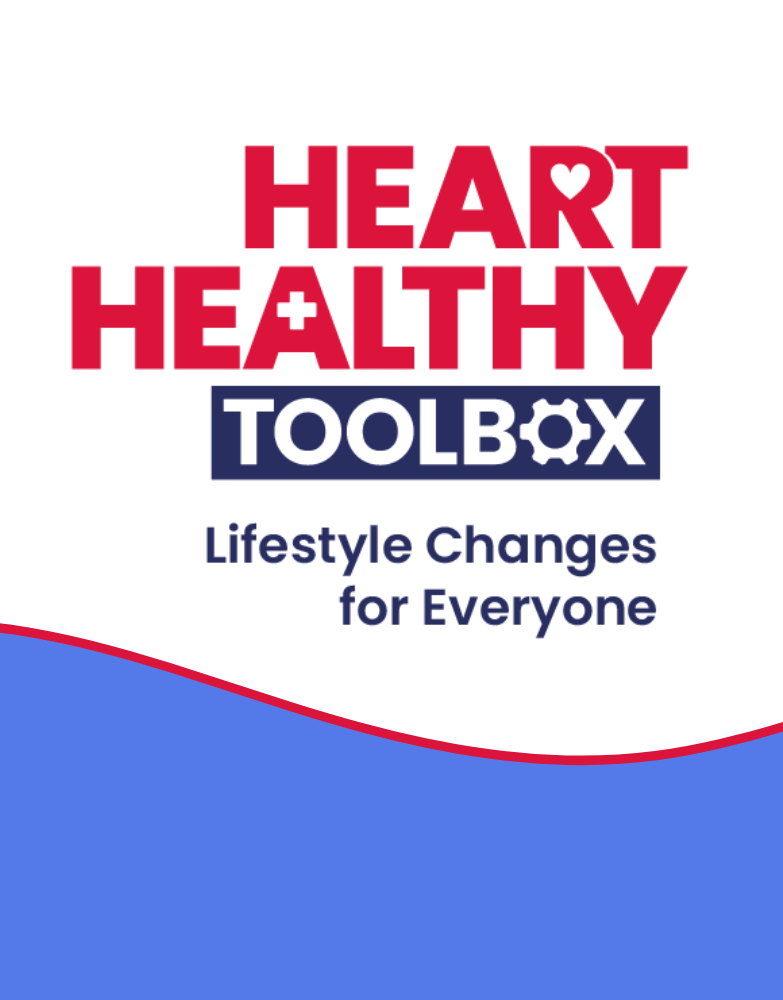While indulging in food and drink during special occasions, holidays, and events is common, overeating and overdrinking are not healthy practices and can have negative consequences. People may indulge for various reasons, but it’s important to recognize that these behaviors, especially in excess, are neither acceptable nor beneficial to overall well-being.1
For many, holidays, events, and occasions like the start of a new year are a time of loneliness and stress.2 There are ways to manage and recover from negative emotions and seasonal overindulgence of eating and drinking. It is also importance to recognize the health impacts of overindulgence, whether it is seasonal or year-round.
Impacts of Overindulgence on Health
Cardiovascular wellness is highly dependent on several factors, including family history, physical activity, and sleep hygiene. However, regular over-consumption of food and alcohol can cause serious complications and increase a person’s risk for developing cardiovascular and metabolic disorders, including hypertension, diabetes, high cholesterol, and obesity.3
Recommendations for Healthy Eating and Drinking
Here are a few recommendations, including the “Dos and Don’ts” for managing cardiovascular health by managing food and beverage intake year-round.
DO recognize “emotional” eating and drinking
Emotional eating is triggered by an emotion rather than physical hunger.1 Emotional eating can result in craving a specific food, such as a “comfort food,” which is generally very sweet or high in fat.4 This behavior can also manifest as ‘nostalgic eating,’ where people crave foods tied to positive memories, such as their favorite childhood snacks.5 Similarly, emotional drinking is the practice of using alcohol as a coping tool to soothe difficult emotions.6

Why do people eat and drink emotionally? Emotional eating and drinking are coping mechanisms used to manage stress, anxiety, or psychological distress.7,8 Alcohol, a depressant, initially slows the central nervous system, creating temporary calm, but its aftermath can worsen anxiety, guilt, or shame.7,8 Similarly, emotional eating involves consuming high-calorie “comfort foods” to soothe negative emotions, often avoiding underlying stressors.7,8
Both behaviors reflect maladaptive coping, prioritizing immediate relief over long-term well-being.8 Alcohol reduces inhibition and memory, enabling escape from stress, while emotional eating distracts from unresolved issues like depression or anxiety.7,8 These behaviors create a cycle: temporary relief reinforces their use, leaving root causes unaddressed.7,8
Research links emotional eating to overweight, obesity, and poor dietary patterns, and emotional drinking to addiction and metabolic risks.7,8 Over time, reliance on these coping mechanisms can lead to cardiovascular disease, metabolic disorders, and worsened mental health.7,8 Addressing these behaviors requires healthier coping strategies to break the cycle and improve health outcomes.7,8
Healthcare professionals, especially nurses, can play a role in identifying and counseling patients who are at risk for using food and alcohol as a coping mechanism. Individuals at risk may include those who are dealing with a chronic health condition, stressed by a heavy load at work, or overwhelmed by social anxiety in college.9 They may also include individuals managing mental health challenges, such as those related to past trauma, or those with a family history of conditions like alcoholism or food addiction.10
The only way to stop stress eating and stress drinking is first to recognize that one is doing it. Recognizing stress-induced eating and drinking is crucial, as chronic stress and elevated cortisol levels are linked to increased cardiovascular risk.11
DO cope with the psychological symptoms of alcohol and food overconsumption.
Alcohol Impacts
Many individuals experience psychological symptoms such as anxiety or depression the morning after consuming alcohol.7,8 These often overlooked symptoms can be just as challenging to manage as the physical effects of a hangover, which include headaches, nausea, disrupted sleep, dehydration, and low blood sugar.7,8 The interplay between these physical and psychological symptoms can exacerbate feelings of distress, particularly for those already prone to mental health challenges.7,8
For those with social anxiety, alcohol may temporarily ease discomfort, but rebound anxiety can worsen after it wears off, surpassing pre-drinking levels.9 This cycle underscores the need to address alcohol’s psychological and physiological impacts.9 Reducing or avoiding alcohol, especially for those with anxiety or mood disorders, is key.10 Healthier coping mechanisms, like mindfulness, social support, or physical activity, can help manage stress without alcohol.9,10
Food Hangovers
Food hangovers can occur the next morning after eating too much fat, meat, sugar, salt, and spice, and the symptoms can be similar to drinking too much alcohol.12 Classic food hangover symptoms include nausea, sluggishness, heartburn, feeling of heaviness, bloating, dehydration, headaches, and stomach upset.13
Certain foods will help with food hangovers. The fiber in the fruits and veggies will add bulk to the stool and move it through the digestive tract and out of the body much faster.14 Some examples of food that can help with food hangovers are a fruit and vegetable smoothie with 1-2 tablespoons of ground flaxseed or vegetable soup.
DON’T associate drinking and eating with relaxing and feeling better
Nurses can counsel patients to explore other ways to help them unwind. Breathing exercises, like the 4-7-8 breathing technique, can be effective.15 It can stimulate the vagus nerve, which can be used to reduce anxiety.
Patients can redirect their focus to exercise or go for a walk. Exercise releases the “happy hormones,” so it can help de-stress and improve mood.16 Connecting with nature for 20 minutes has been shown to initiate relaxation.
DON’T give up
Let us assist patients in their efforts to avoid overeating and over-drinking by supporting changes they intend to make to arrange their world for success. This is the critical action step in taking control over one’s goals. If patients are determined to stop overindulging in food or drink, recommend arranging their world for success by:
- Removing all reminders of the addiction from their home and workplace (e.g., alcohol, bottle openers, wine glasses, and corkscrews). The same goes for binge foods.17 It’s just like not keeping cigarettes around the house if you are trying to quit smoking.
- Separating from those who would encourage them to be involved with the very item or behavior they are trying to avoid.17
- Not letting other people use or bring reminders of the addiction-related substance or behavior into their home.
Implications for Clinical Practice
Recognizing and addressing emotional eating and drinking is essential for managing stress and negative emotions. Creating a supportive environment is equally important, as it helps prevent overindulgence and fosters healthier habits. This support often comes from clinical settings, where nurses play a pivotal role as facilitators.
By guiding patients toward healthy coping strategies and offering encouragement, nurses can help individuals build the resilience needed to maintain positive lifestyle changes and avoid the health risks associated with overeating and overdrinking. 18
References
- Macht M. How emotions affect eating: A five-way model. Appetite. 2008;50(1):1-11. doi:10.1016/j.appet.2007.07.002
- Everyday Health. Holiday Blues. Published November 19, 2024.
- Martin SS, Aday AW, Almarzooq ZI, Anderson CAM, Arora P, Avery CL, et al. 2024 Heart disease and stroke statistics: a report of US and global data from the American Heart Association. Circulation. 2024;149(8):e347-e913 . doi.org/10.1161/CIR.0000000000001209.
- Adam TC, Epel ES. Stress, eating, and the reward system. Physiol Behav. 2007;91(4):449-458. doi:10.1016/j.physbeh.2007.04.011
- Wang X, Keh HT, Chao C. Nostalgia and consumer preference for indulgent foods: the role of social connectedness. Int J Consum Stud.2018;42(2):231-240. doi:10.1111/ijcs.12419
- Koob GF, Volkow ND. Neurobiology of addiction: a neurocircuitry analysis. Lancet Psychiatry. 2016;3(8):760-773. doi:10.1016/S2215-0366(16)00104-8
- Lopez-Cepero A, Frisard CF, Lemon SC, Rosal MC. Association of dysfunctional eating patterns and metabolic risk factors for cardiovascular disease among Latinos. J Acad Nutr Diet. 2018;118(5):849-856. doi:10.1016/j.jand.2017.06.007
- Dakanalis A, Mentzelou M, Papadopoulou SK, Papandreou D, Spanoudaki M, Vasios GK, et al. The association of emotional eating with overweight/obesity, depression, anxiety/stress, and dietary patterns: a review of the current clinical evidence. 2023;15(5):1173. doi:10.3390/nu15051173
- Choi J. Impact of stress levels on eating behaviors among college students. Nutrients. 2020;12(5):1241. doi:10.3390/nu12051241. PMID: 32349338; PMCID: PMC7284653.
- Knaak S, Mantler E, Szeto A. Mental illness-related stigma in healthcare: barriers to access and care and evidence-based solutions. Healthc Manage Forum. 2017;30(2):111-116. doi:10.1177/0840470416679413.
- National Heart, Lung, and Blood Institute. Study links high levels of stress hormones to increased blood pressure, cardiovascular events. Published November 1, 2021.
- Ismail K, Bayley A, Twist K, et al. Reducing weight and increasing physical activity in people at high risk of cardiovascular disease: a randomised controlled trial comparing the effectiveness of enhanced motivational interviewing intervention with usual care. Heart. 2020;106(6):447-454. doi:10.1136/heartjnl-2019-315656.
- Cleveland Clinic. Overeating. Cleveland Clinic. Reviewed February 7, 2023.
- Wang F, Li Y, Zhang YJ, Zhou Y, Li S, Li HB. Natural products for the prevention and treatment of hangover and alcohol use disorder. Molecules. 2016;21(1):64. doi:10.3390/molecules21010064
- Vierra J, Boonla O, Prasertsri P. Effects of sleep deprivation and 4-7-8 breathing control on heart rate variability, blood pressure, blood glucose, and endothelial function in healthy young adults. Physiol Rep.2022;10(13):e15389 . doi:10.14814/phy2.15389.
- Harvard Health Publishing. Exercising to relax. Harvard Medical School. Published July 7, 2020.
- Janak PH, Chaudhri N. The potent effect of environmental context on relapse to alcohol-seeking after extinction. Open Addict J. 2010;3:76-87. doi:10.2174/1874941001003010076.
- National Academies of Sciences, Engineering, and Medicine. Implementing High-Quality Primary Care: Rebuilding the Foundation of Health Care. Washington, DC: The National Academies Press; 2021.
Published on
June 18, 2025
Related Resources








